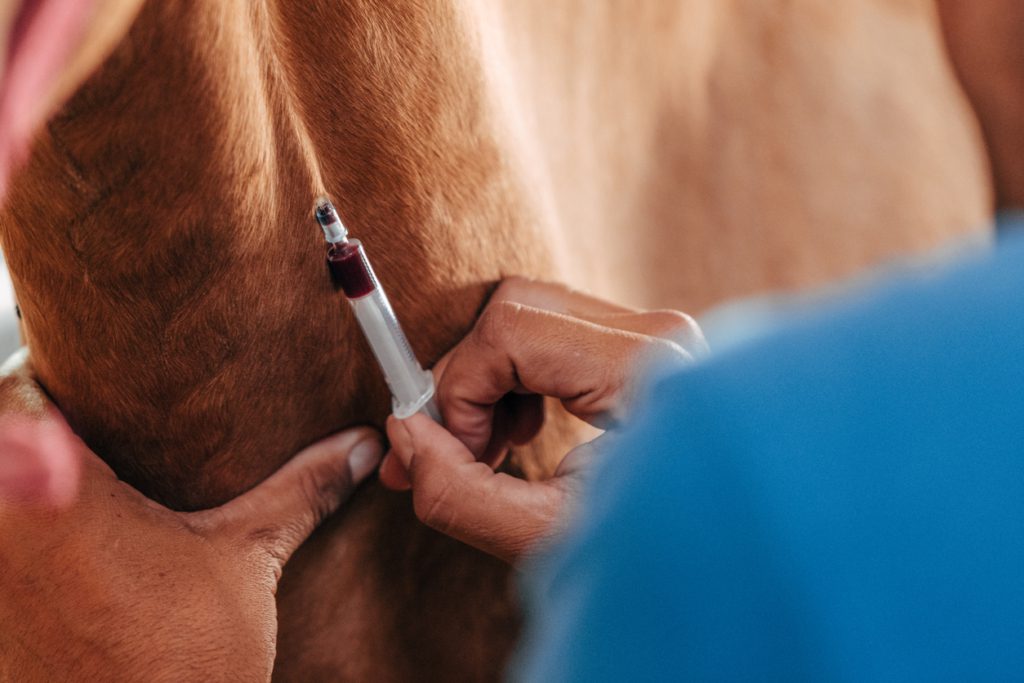Latest Blogs
Cold chain – Best practice for veterinary vaccines & medicines
The importance of veterinary vaccines
Veterinary vaccines and other veterinary medicines, provide a crucial role in preventative health for livestock farming in the United Kingdom. When implementing a vaccination protocol on a farm, it is often considered to be a ‘magic bullet’ that will be one hundred percent effective at preventing a particular disease.
However, this is not often the case and veterinary vaccines should never be considered as an ‘on–off switch’, but more as a ‘dimmer’. Vaccination is just part of the prevention strategy. The phone call every farm vet dreads is a disease outbreak of a disease they are already vaccinating for.
When this happens the perception is often that the vaccine has not worked. A vaccine is only part of the prevention, but when investigating these scenarios, veterinary vaccine handling is always a very tenuous part of the discussion. Vaccine storage seems to be a part of the vaccination program that is often overlooked. Some farmers can be spending thousands of pounds on a batch of vaccines, but the importance of the cold-chain can be trivialised.
What is cold chain?

Cold-chain is the process in place to ensure that vaccines and other veterinary medicines that require refrigeration are always kept within a temperature range of 2⁰C and 8⁰C, from manufacturing to administration. Any deviation from this temperature range can lead to vaccine failure, as vaccines are very temperature sensitive.
Live vaccines are particularly sensitive to temperature fluctuations, which are often prioritised to avoid overheating vaccines. However, it must also be remembered that veterinary vaccines can also get too cold! This is dangerous as if a vaccine gets too cold, a microscopic precipitate can form which can lead to an even more severe local inflammatory reaction.
What are the implications of veterinary vaccines if the cold chain fails?
Cold-chain failure can result in decreased potency of the vaccine and therefore reduce the immune response from the animal. This can result in clinical cases of a disease that a farmer has already vaccinated for, and in the worst-case scenario, an outbreak situation.
There are several implications: animal welfare, economical loss, sustainability issues as well a mistrust in the vaccine product itself. Many diseases vets vaccinate for in the ruminant sector not only have severe implications to the animal’s welfare but also are untreatable if they develop.
A good example would be bovine viral diarrhea (BVD) vaccines. The BVD virus is untreatable, and infected animals remain infectious for life. Animals infected with the virus are immunosuppressed and have increased susceptibility to other pathogens on the farm.
Vaccinations play a crucial role in controlling this disease. BVD is considered one of the biggest disease challenges facing cattle herds across the United Kingdom. It is estimated that this disease costs UK farmers up to 61.1 million GBP every year.
Another implication to consider is antimicrobial resistance. Historically, antibiotics were used as an aid to the prevention of bacterial infections in livestock production. However, with increasing antimicrobial resistance impacting human health, the use of antimicrobials must be more rigorously justified.
Vaccinations provide a more sustainable preventative tool for maintaining animal health and welfare without impacting human health. A cold-chain failure could result in a disease outbreak situation which would inevitably result in increased antimicrobial use.

Maintaining a cold chain vaccine during transport
The cold chain is the system in place for maintaining a set temperature range for a product from manufacturing right through to administration to the animal. When pharmaceuticals are transported between the manufacturers, distributors and veterinary practice, purpose-built, refrigerated transport is used. However, the cold-chain from the veterinary practice to animal administration can be a lot less regulated.
Some vet practices will provide farmers with a cool bag to store their veterinary vaccines during the journey back to the farm, whilst others will use cold-chain boxes to deliver products via courier.
But what happens to the vaccine on the day of administration?
A vaccination session of hundreds of animals can take hours. Having vaccines left at the side of a handling system during this time will not maintain the cold chain.
A pre-validated Vet-Cool is a practical solution that will ensure the correct storage temperature is maintained of all veterinary vaccines during dosing. This system has been tested against extreme external temperatures of -10 and +30 degrees with the lid being opened and closed several times during a 65 hour period.
If you would like to learn more about our temperature controlled packaging solutions, check out our solutions here or get in touch with us on info@vet-way.com or +44 (0) 1904 607 600.

